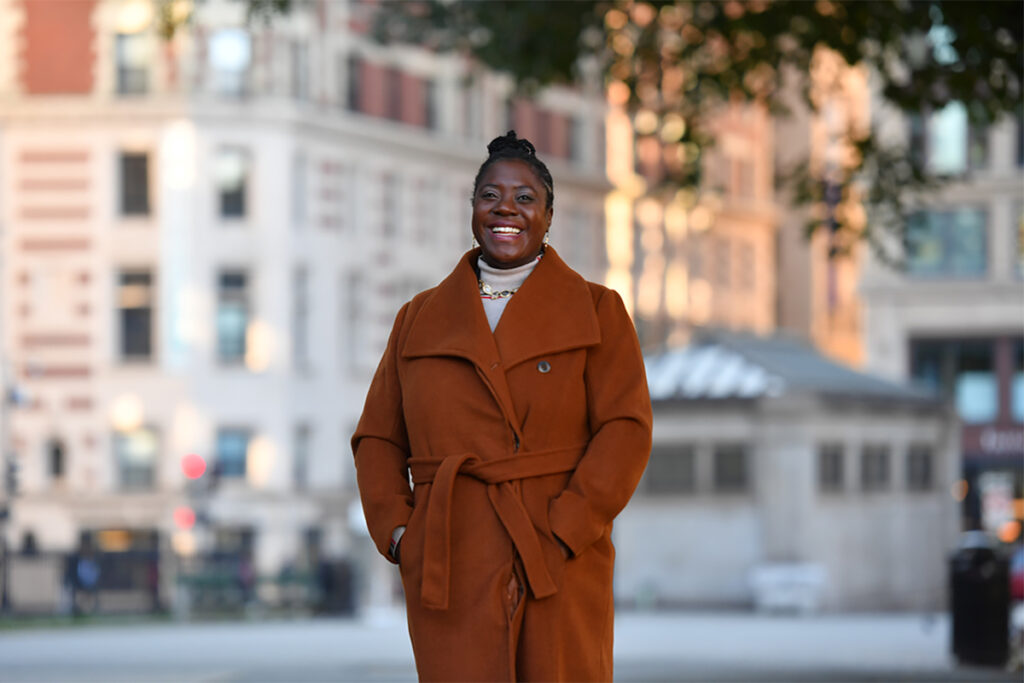Emerson Leadership Disappointed with Affirmative Action Ruling
The U.S. Supreme Court’s ruling that race-conscious admissions in higher education is unlawful removes from Emerson’s toolbox an important instrument for building a diverse and equitable student body, the College’s chief equity officer said.
“Affirmative action is one of many tools to use as a society to make higher education more equitable,” said Vice President for Equity & Social Justice Shaya Gregory Poku. “I think affirmative action has evolved over time, and there is no denying the fact that historically, it has helped lower socioeconomic people, people with disabilities, women, and people of color. Even though affirmative action isn’t a perfect tool, it is one that can remediate historical and ongoing injustice.”

Plainly put, Poku said, the decision will have serious implications for the country and generations of students to come.
In a letter to the community, Emerson College President Jay Bernhardt said the College’s legal counsel will review SCOTUS’ decision from legal and practical perspectives.
“At Emerson, we care deeply about all aspects of a prospective student’s background and story, and we want our community to be a welcoming place for all those who dream of joining us,” said Bernhardt. “While we are profoundly disappointed with the outcome of these Supreme Court cases, we reaffirm that equity, access, and social justice are core values of Emerson College. We remain committed to recruiting, cultivating and supporting students who reflect our diverse society. We will continue to pursue these goals to the best of our ability within the confines of the law.”
The Supreme Court looked at two specific affirmative action cases: one against Harvard, and the other vs. the University of North Carolina, to render their decision. The court voted upon partisan lines, 6-3, with the three liberal justices dissenting.
SCOTUS Chief Justice John Roberts said universities can consider how race has affected an applicant’s life. For example, applicants could use essays to inform admissions about their race and cultural background, suggested Poku. But Roberts added that students “must be treated based on his or her experiences as an individual – not on the basis of race.”
Roberts exempted military academies from the ruling.

Colleges already were not allowed to require that race be disclosed on admission applications. The U.S. Department of Education does collect demographic data on admissions. Poku said that data is important to track graduation rates and determine if there are racial disparities.
The belief among many is that without allowing race as one of many factors to consider in accepting students, fewer Black and Latino individuals will be accepted to college.
Having a less diverse student body would also have an effect on the accepted class. Many people grow up in de facto segregated neighborhoods, and college is a way for people of different cultures to meet, said Poku.
“There’s a lot of sociological, education, and psychological data that shows people learn a lot from learning in a diverse environment,” said Poku.
Poku said progress in fighting racial disparity in higher education has only happened in the last several decades. Her father grew up in Alabama, and could not attend many colleges because he was Black. He attended Alabama A&M, a historically black university. Only one generation later, Poku earned a bachelor degree from Agnes Scott College, a master of arts from Lesley University, a master of science from Northeastern University, and is a certified mediator through the Program on Negotiation at Harvard Law School.
Poku is proud of her family’s rich ties to many HBCUs, but also grateful for wider access to colleges and universities that once denied people of color access.
Poku said that all colleges and universities will remain accessible to everyone, but affirmative action was used to intentionally increase diversity. She added that relationships colleges have with race-based nonprofits could be affected. Those programs often provide outreach and onboarding for students of color.
“We would have to reimagine the structure to continue to have a diverse student body. And that’s a lot of work. It would require a complete overhaul,” Poku said last week, prior to the ruling. “It would just make it a lot harder to recruit a diverse class.”
Categories